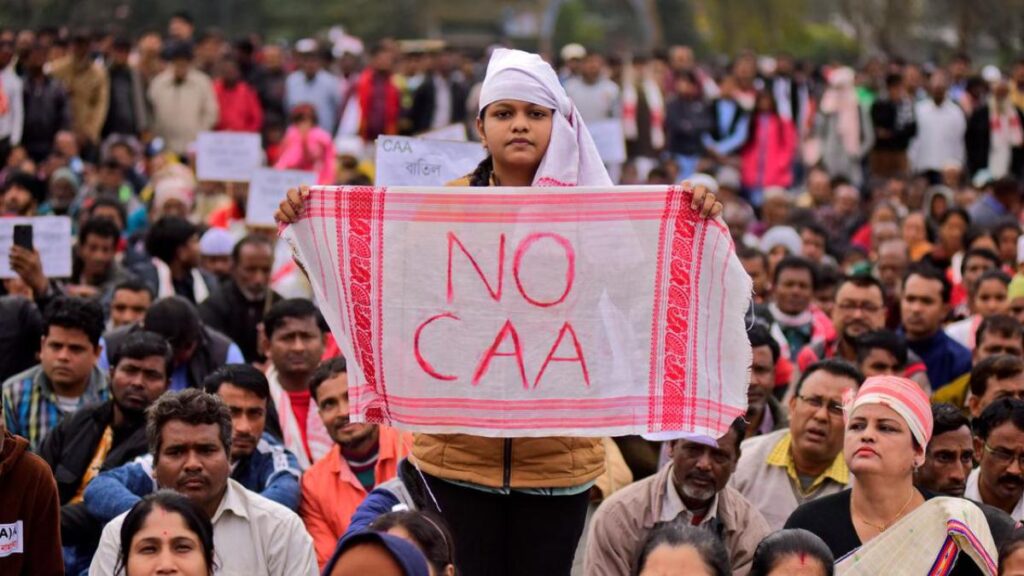In the northeastern state of Assam, the political climate has been charged with debates and protests surrounding the contentious Citizenship Amendment Act (CAA). Recently, the Assam Police made headlines as they issued a stern warning to opposition parties, urging them to withdraw their agitation against the CAA. This development has sparked discussions about the right to protest, freedom of expression, and the role of law enforcement in maintaining public order.
The CAA, enacted in December 2019, has been a topic of heated debate across India, particularly in states like Assam with diverse demographics and complex socio-political dynamics. The legislation offers a path to Indian citizenship for non-Muslim migrants from neighboring countries, including Afghanistan, Bangladesh, and Pakistan, who arrived in India before December 31, 2014. However, it has faced widespread criticism and protests, with opponents arguing that it undermines the secular principles of the Indian Constitution and discriminates against Muslim minorities.
In Assam, the opposition parties, including the Indian National Congress (INC) and the All India United Democratic Front (AIUDF), have been vocal critics of the CAA, citing concerns about its potential impact on the indigenous communities and the Assamese identity. They have organized protests, rallies, and public demonstrations to voice their opposition and demand the repeal of the controversial law.
The recent directive from the Assam Police to withdraw the stir against the CAA has raised questions about the limits of dissent and the role of law enforcement in a democratic society. The police reportedly warned the opposition parties of strict action if they continued with their agitation, citing the need to maintain law and order and prevent any disruption to public peace.
The move has drawn criticism from civil rights activists and political observers, who argue that it undermines the fundamental right to freedom of expression and peaceful assembly guaranteed by the Indian Constitution. They assert that dissent is an essential component of democracy and that citizens have the right to express their grievances through lawful means, including protests and demonstrations.
Opposition leaders have condemned the police directive, accusing the government of attempting to suppress dissent and stifle democratic dissent. They argue that the CAA is a deeply divisive and discriminatory law that goes against the secular ethos of the Indian Constitution and poses a threat to the rights and identity of the people of Assam.
However, supporters of the police action argue that maintaining law and order is paramount, especially in a sensitive and volatile situation like the CAA protests. They contend that while peaceful protests are a legitimate form of expression, any attempt to disrupt public order or incite violence must be dealt with firmly to prevent chaos and ensure the safety of the public.
The standoff between the Assam Police and the opposition parties underscores the deep-rooted tensions and complexities surrounding the CAA issue in the state. Assam, with its history of ethnic conflicts and identity politics, has been particularly sensitive to issues of immigration and citizenship, given its proximity to Bangladesh and its large population of Bengali-speaking Muslims.
As the debate over the CAA continues to polarize the state, it is imperative for all stakeholders to engage in constructive dialogue and seek a peaceful resolution to the underlying grievances. The government must address the concerns of the people of Assam, especially the indigenous communities, and work towards building consensus on the way forward.
In a nutshell, the Assam Police’s warning to opposition parties over their protest against the CAA has reignited discussions about the balance between the right to dissent and the maintenance of public order. While ensuring law and order is crucial, it is equally important to uphold the principles of democracy and protect the fundamental rights of citizens. The ongoing tensions underscore the need for a nuanced and inclusive approach to addressing the complex socio-political issues facing Assam and the broader region.

